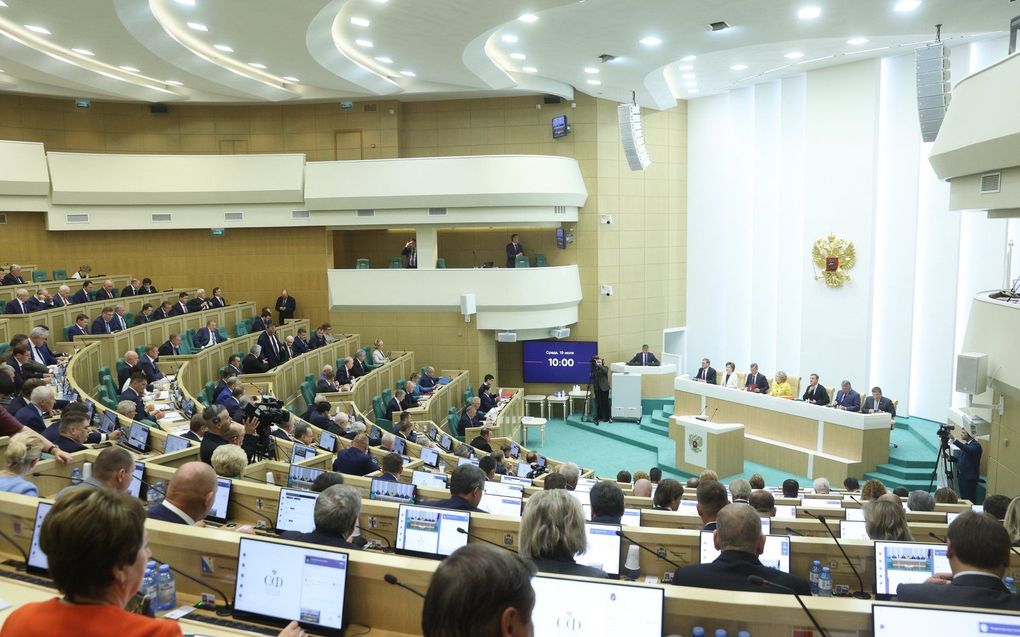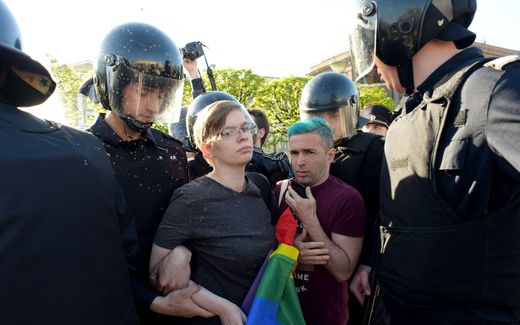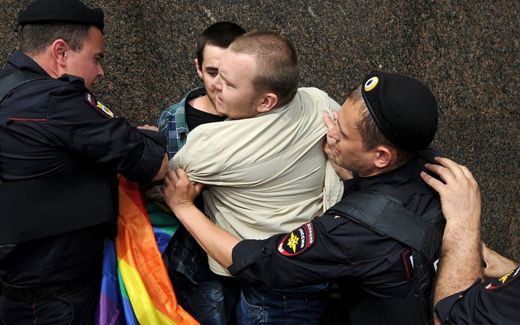Russian Senate votes unanimously for ban on gender change

The meeting of the Russian Upper Chamber which voted in favour of banning gender reassignment. Photo Council of the Federation, CC BY 4.0
Eastern Europe
The Upper Chamber in Russia has been clear: Gender reassignment must be banned from the country.
Members of the Federation Council voted unanimously on Wednesday in favour of the bill that was already approved by the Russian Duma last week. That is reported by Svoboda. If President Vladimir Putin signs it, it can come into force.
The bill proposes that gender change is only possible in rare cases, not including people who feel they belong to the opposite gender, Ria Novosti writes. Only when children suffer congenital physiological anomalies, for example, is treatment allowed. A medical commission will have to give permission for this.
In addition, a marriage in which a spouse changed his or her sex should be automatically dissolved, the bill reads. That would require a change of the Family Code, which describes the conditions for divorce. Furthermore, anyone with a certificate of gender change would no longer be able to adopt children. And if someone changes his or her physical gender abroad, he or she will not be able to change the legal gender marker in official Russian documents accordingly.
Public sphere
The tightening of Russia's transgender laws fit within a trend of the authorities curbing the LGBT community, CNN reported earlier.
Last November, the Russian regime banned "gay propaganda". Information about homosexuality, bisexuality or any other sexuality besides hetero-sexuality can no longer be distributed to anyone, the government decided. Also, information about gender transition was to disappear from the public sphere. Before that, such information was forbidden to present to children, but now the law is extended to adults as well.
Streaming platforms
According to the Moscow Times, at least 19 lawsuits have been opened based on the propaganda law. They are all about streaming platforms which facilitated films depicting "non-traditional sexual relations."
Russia presents LGBT values and members of the rainbow community as Western and degenerate. When the bill was considered by the Duma, deputy chair Petr Tolstoy said: "We preserve Russia for posterity, with its cultural and family values, traditional foundations, putting up a barrier to the penetration of Western anti-family ideology."
Related Articles








